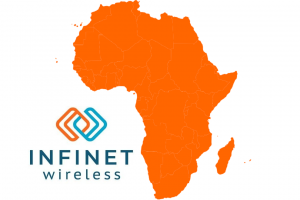Sudan: Sudan’s biggest mobile phone operator Zain is treading cautiously in the country’s poor south, as it weighs up the prospect of a relatively untapped market with high costs and instability, a senior executive told Reuters.
Despite being weighed down by U.S. sanctions and conflict that have deterred investment in other sectors, Sudan’s mobile phone market has boomed in recent years and the country has emerged as a lucrative African market for telecoms players.
But South Sudan, which is expected to become Africa’s newest nation in July after voting to secede earlier this year, is expected to prove a tougher market to tap.
Kuwait’s Zain, which has a 60 percent market share in Sudan, has invested $300 million — or about 20 percent of total capital expenditure in Sudan — over the past five years in the south, but the region still accounts for only a tiny share of revenues, said Hisham Mustafa Allam, chief operation officer for Zain in Sudan.
“There’s potential for South Sudan, but there are big challenges,” Allam said in an interview at his Khartoum office. “One of the problems we have right now is it costs lots of money to build sites and do rollout (of fibre) in the south.”
Building a broadband network is particularly expensive in South Sudan because as a landlocked country it will have to rely on north Sudan or Kenya for access to undersea cables, he said.
Uncertainty over how South Sudan’s nascent government plans to regulate the sector further complicates the picture.
Telecom companies operating in the south last week received a letter from the South Sudan government telling them to suspend work there until the administration publishes new rules for the sector, which could force Zain to delay some work on cell towers and laying of fibre, Allam said.
Though he expected the company’s mobile licence to be valid in South Sudan after July, Allam said he could not be “100 percent sure” that would be the case either.
Allam acknowledges that Zain, which has expanded from just three or four cellular towers five years ago to about 150 in the south now, began expanding in the south mainly for network coverage reasons rather than profit.
“For Zain, the decision to rollout in South Sudan was purely a strategic decision; it was not a business decision, because at that time we had Zain Uganda and Zain Kenya and so to have one network you couldn’t have it without South Sudan,” he said.
“(Having) said this, we believe there is opportunity in South Sudan. We will not say South Sudan is not good for business. There’s still opportunity for business in South Sudan when things start to stabilise and infrastructure is there.”
Zain, which has about 10.5 million subscribers in Sudan, operates there alongside rivals MTN of South Africa and Sudan’s own Sudani brand. Sudan’s mobile market reaches about 40 percent of its 40 million people. The south, with a population of about 8 million, has also given mobile licences to two other operators.
UAE Telecom firm Etisalat on Saturday scrapped its $12 billion offer to buy a controlling stake in Zain Sudan’s parent company. Zain’s operations in growth markets like Iraq and Sudan were part of what made it an attractive target.
Overall, the voice segment in Sudan’s mobile market is stabilising after its heady growth in previous years and is likely to see growth of 10-15 percent annually, down from roughly 30 percent average growth in previous years, Allam said.
May 21, 2025











